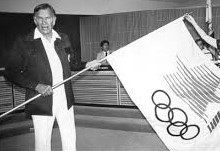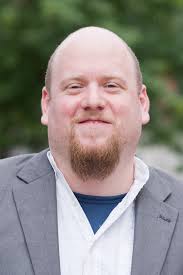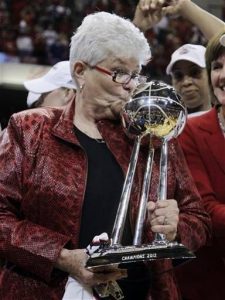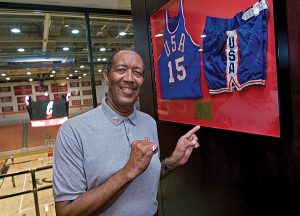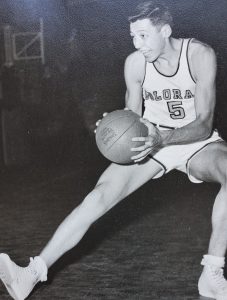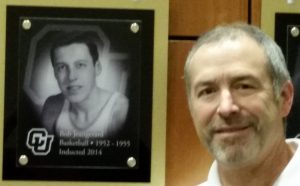The NBA Finals date back to 1947 (when they were known as the Basketball Association of America Finals) and the very 1st NCAA tourney was held in 1939. Olympic basketball competition is even older: it debuted as a demonstration event in 1904 and the men’s version became a medal sport in 1936, with the women finally getting their chance to go for the gold in 1976. The United States has dominated Olympic basketball competition from the start: the men have won 15 gold medals in the 18 tournaments they have participated in during the past 84 years, while the women have won 8 gold medals in the 10 tournaments in which they have competed during the past 44 years. Those of you who were looking forward to the 2020 Olympics opening ceremonies in Tokyo on July 24, 2020 will have to wait an extra 364 days, as the coronavirus caused a postponement until July 23, 2021. Due to the absence of college basketball since mid-March, HoopsHD’s Jon Teitel decided to fill the void by trying to interview as many prior Olympic players/coaches as possible so that you have something to read this summer while not watching the Summer Games. We continue our coverage by chatting with Gail Marquis about winning a silver medal in 1976.
You were a 2-time All-American at Queens College where you averaged 20+ PPG during your final 2 years: what did it mean to you to receive such outstanding honors? I always strived to be the best and to get open. I really was not much of a scorer when I started college but I worked hard to get open and prided myself on scoring later on. When I was coming up those kinds of titles were just starting for women: most of today’s accolades now were not around then.
In 1975 you were part of the 1st women’s basketball team (college or professional) to play at Madison Square Garden: how big a deal was it at the time? It was a really big deal. We played a big game on campus the previous year against Immaculata College. MSG chairman Sonny Werblin wondered why we did not play in his arena. We had a practice session at the Garden on a Thursday which helped get some of the jitters out of the way and helped with our depth perception, as a huge arena is very different from a small gym. My coach was barking out orders when all of a sudden Marquette coach Al McGuire walked into the arena. I followed the men’s game because women were not on TV back then so it was nice to see Al taking an interest in our team: once he showed up we started making sharper cuts during our halfcourt drills. We had about 11,500 fans at our game as the 1st part of a doubleheader. They played Helen Reddy’s “I am Woman” when we came out for pregame drills and the crowd was fierce. I have met so many women who went to that game as little girls: it holds a very special place for me.
You played for team USA at the 1976 Olympics: what did it mean to you to represent your country, and what did it mean to you to win a silver medal? I could not even believe that we were making history at the time. To put on that uniform and see all of the red/white/blue was amazing. I was 1 of 4 players who had never been on the national team before so we had to play good enough to get the spots of some women who were on the 1975 Pan Am Games gold medal team. We had home and away uniforms and they looked so good. I remember wearing a white jacket at the opening ceremonies: we were under such control the entire time but were so proud to head to the Olympic Stadium and start marching in as a group of 300 athletes. When they announced our country in French we heard the roar of the crowd and I finally realized the impact: it still sticks with me. We were not 1 of the favorites: Russia was expected to win the gold. We played a round-robin and our coach told us that if we beat Czechoslovakia then we would win a silver and if we lost then we would not get anything. The award ceremony was great: we marched in 1st with Russia right behind us. To see our own flag get hoisted up and then put our hands over our hearts made us so proud. We will always be the 1st US women’s basketball team to win a medal.
You later spent a few years playing pro basketball in France while completing your undergrad studies: what was the biggest difference between college basketball and pro basketball, and how much importance do you place on education? I did study French but was still working on my undergrad degree because I still had about 15 credits left before I could graduate: the MBA came later. Coming off the Olympics and using up all of my college eligibility I could not find a competitive team and league to play for. I did not want to just play AAU ball on the weekends so I negotiated a deal to play in France. When I arrived at the airport in Nice, France, I did not understand the language so I signed up for a French class with students from many other countries and a teacher who only spoke French. After 6 months I could understand a lot more and was still eligible for the 1977 World University Games. I always knew that I was going to get my degree even if my father did not understand why it was taking me so long. By 1980 I was able to graduate and receive my degree: education is very important to my entire family. I later got my MBA from the University of Phoenix. When I was playing, college basketball was the pinnacle and was well coached/organized even if there were not a lot of fans in the stands. Now I am just amazed at how the young women are competing at all levels of higher learning institutions. There is such a great discipline about being in sports: men have always had that opportunity and now women do as well. Most women stick around for 4 years so a lot more of them receive their degrees, and pro leagues allow women to keep doing what they love.
After returning to the US you played for the New York Stars in the Women’s Basketball League where you set a league record for wins and won the League championship: what did it mean to you to win a title? Dean Meminger was my coach at the time. We were world champions…and then the team folded before we had a chance to defend our title! Dean brought a lot of what he learned from McGuire/Red Holzman to our game. We practiced at LaGuardia Community College and then an hour later the Knicks would come by for their own practices. We used a half-court press that came from Red’s playbook. Dean loved to break down techniques and talk about the game. George Karl also came around as well. When I was a commentator for a team in New England I got to spend time around KC Jones. I had already won championships in France so winning a title was something that I just expected. I was not cocky but even if we were down by 10 at halftime we would keep grinding and find a way to win. It is a great lesson to take with you when you enter the real world.
You have worked as a color commentator for many pro/college teams: how does your on-court success aid your analysis from the broadcast booth? I could see the game so well and knew what to look for. If I was watching a Rutgers-UConn game I could see picks coming off the weak-side. As a former official I could break things down and tell people what to look for off the ball. I would never repeat the score because you can see that for yourself but I looked at different coaching techniques: Vivian Stringer would use a zone defense while Geno Auriemma would use screens to help Diana Taurasi get free. I did not have a crystal ball but tried to get some good insight. I learned to think before I spoke and not put my foot in my mouth!
After retiring from basketball you worked in the financial services industry and later launched your own company: how did you get into the business, and what do you think of the current state of the US economy? After the Olympics/pro basketball there was nowhere else for me to play and I was still very competitive so I did not want to just coach 12-year olds who needed a water break! I did not want to be a dumb jock so I got some nice suits and enjoyed the competitive nature of Wall Street. I moved around and worked my way up through several brokerage houses before starting my own firm and educating people about savings/retirement/mortgages. When the Obama administration came in after the banks collapsed in 2008 the economy was in bad shape. I know how much the Treasury Secretary worked to fix things but after the recent drop I decided to wait it out because I thought that it would come back. When it was falling badly I tried to not look at it and just decided to let it ride. Seasoned investors understand the ups and down: if you cannot handle the volatility of the market then you should stick with a conservative money market account and try to make 2%. When you add on the unprecedented pandemic we are all learning how to right the ship. I am worried about the economy but am not too worried about the stock market. 5 years ago there was no “Zoom” and they have filled the void, as did niche markets like e-commerce.
In 2009 you became the 1st woman of color inducted into the New York City Basketball Hall of Fame and in 2013 you were inducted into the Queens College Athletic Hall of Fame: where do these rank among the highlights of your career? They are very much highlights. Behind Naismith I think that New York City is the #2 Hall of Fame in the country. I learned a lot at college but learned grace/spontaneity from playing in the local parks. I was so glad to be recognized. Queens College is right in the heart of the city so to make it to the Olympics from there made me very proud. That is our community and I stayed home because we had the best basketball team.
In 2011 you married your longtime partner and your subsequent work with the Freedom to Marry organization helped result in the legalization of same-sex marriage after a 2015 US Supreme Court ruling: how do you think that the issue has evolved over the past decade, and what does the future hold for same-sex couples? It evolved from coming out of the closet to hear me roar to more and more acceptance. I do not know if Joe Biden influenced Obama but now we have more allies who recognize the value of the same-sex community. It is similar to sports: good players just want to win regardless of the race of their teammates. It has slowed down but people still love/respect one another so I believe it is in the hands of our young people. There is no reason to be in the shadows so I do not think that it can be put back into the box. We are also in a good spot because a lot of young people are LGBTQ or have friends who are and they will not accept bullying. They will show us the way and while there is still work to do the future is positive.
You currently work as Director of Development for The William J. Maxwell College of Arts & Sciences at New Jersey City University: how do you like the job, and what do you hope to do in the future? My biggest job is to connect with our 70,000 alumni who can give money and do not realize the place they hold. I got this job a year ago and thought that I was close to retirement but now I feel that I have to stick around for 5 more years. I am helping 1st-generation college students who do not have a lot of funds and try to keep them moving forward. There is still room for giving and to help people. It is never about the dollar amount but I am really proud of our alumni during the past few months as our student body has moved to online learning. Some people gave $5 and some gave $5 million, which is huge for a school with a transient student body. If it was just about sending out a letter/email then you would not get anything. At times it is like turning an ocean liner but I was placed here for a reason.
Are there any thoughts you would like to share about everything that has been going on in our country recently (George Floyd/protests/police/other)? It is also pushed by young people in all 50 states who realize that there are injustices that need to be corrected. When we were going through the pandemic I told my family/friends that we are not coming out the same way on the other side. It is our job to find out what the lessons were that we were supposed to learn and what changes we are supposed to make. We owe it to ourselves and the next generation to figure out how this happened: were we lazy or conceited or something else? Most of these injustices have been around for centuries and thanks to camera phones we now have the proof. People could see what was going on in different communities and fortunately the haves are starting to see what happens when the police meet the have-nots. We have an administration that gassed its own people: we will all rise together and need to put things into place.



